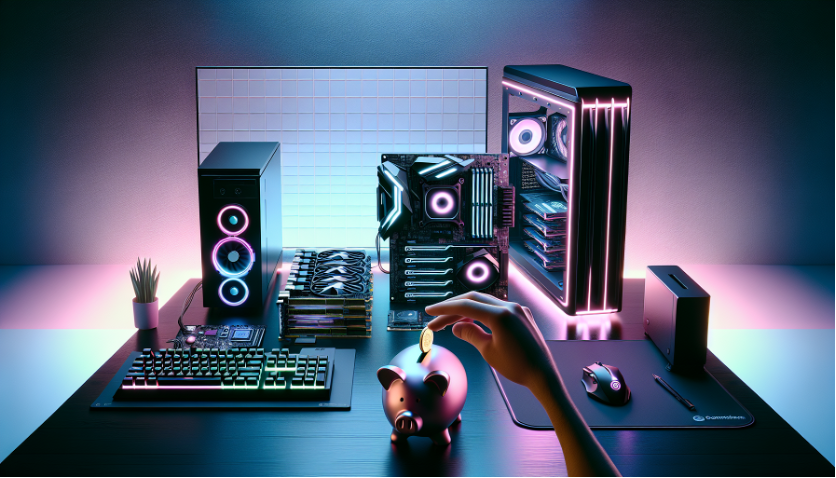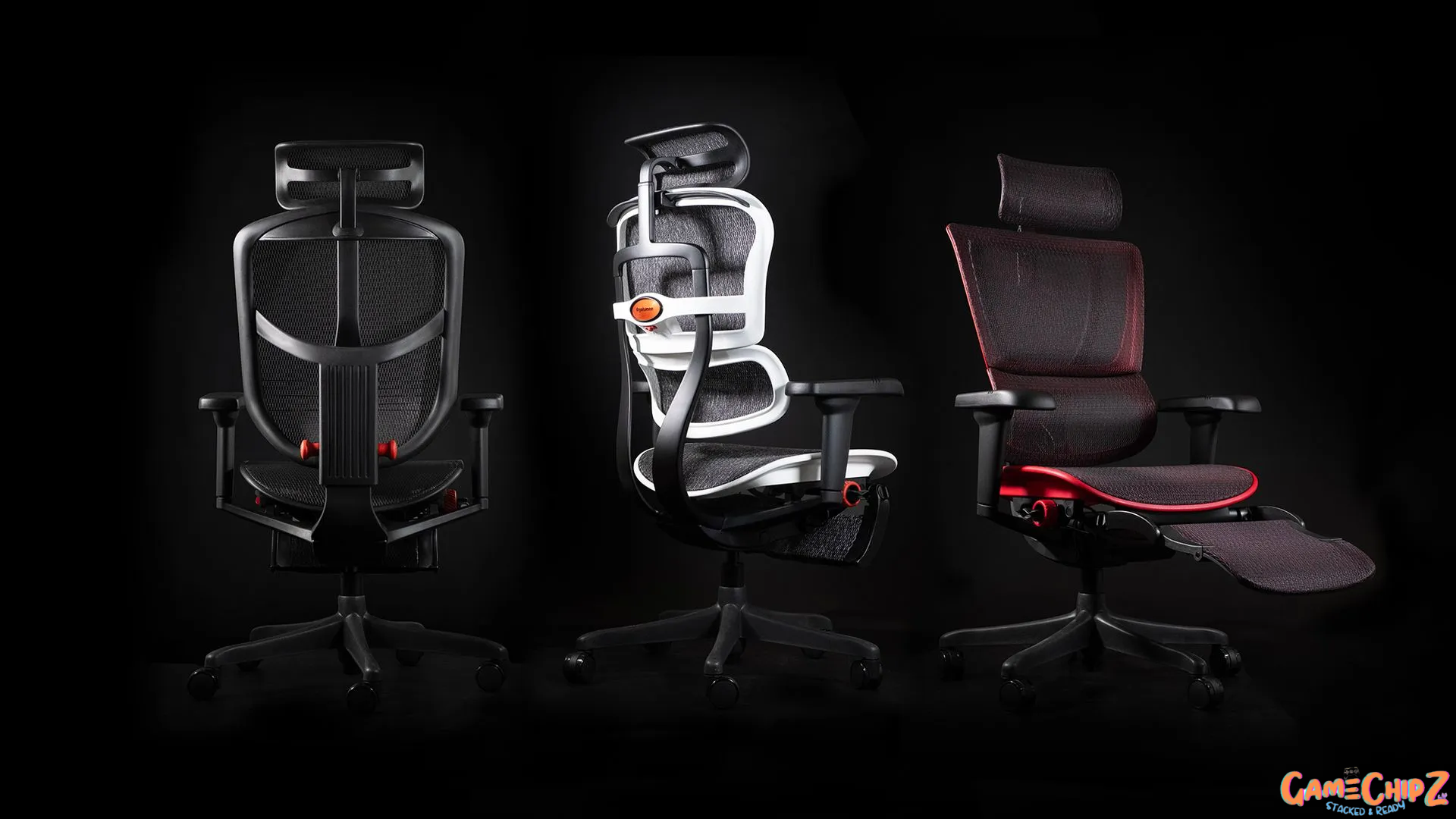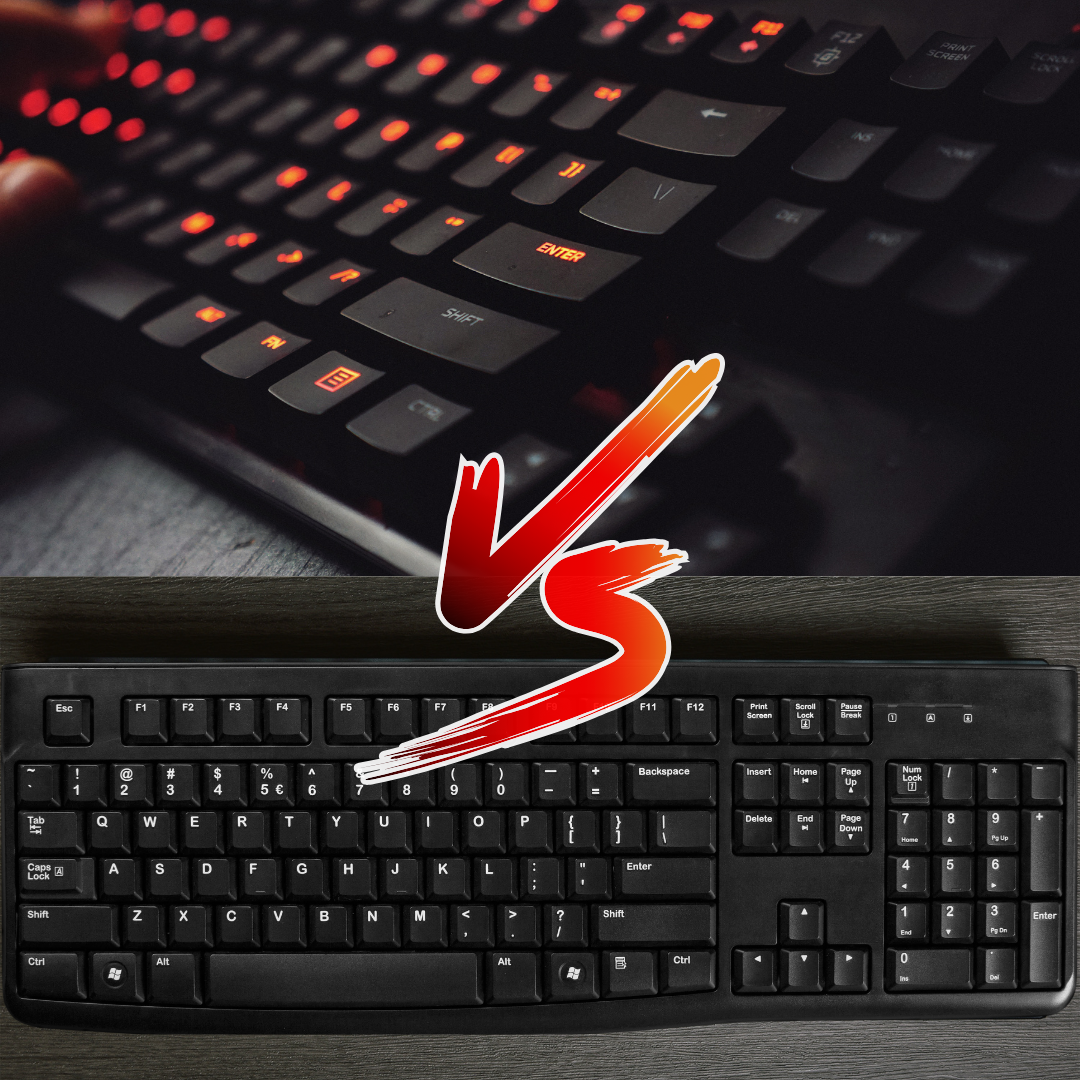Building a Budget-Friendly Beast in 2024: The Best PC Components for Gamers on a Tight Budget
PC gaming, with its allure of customization, invites gamers to explore an extensive selection of hardware and accessories, making it a personal journey to build the best budget gaming PC in 2024. The shift towards gaming desktops is driven by their upgradability and capacity to accommodate powerful components, presenting an increasingly attractive option for those moving away from consoles. Amid diminishing exclusivity and the comparable performance of high-end console models to mid-range PCs, the pursuit for value has led many to consider prebuilt gaming PCs, especially when graphics cards’ prices soar.
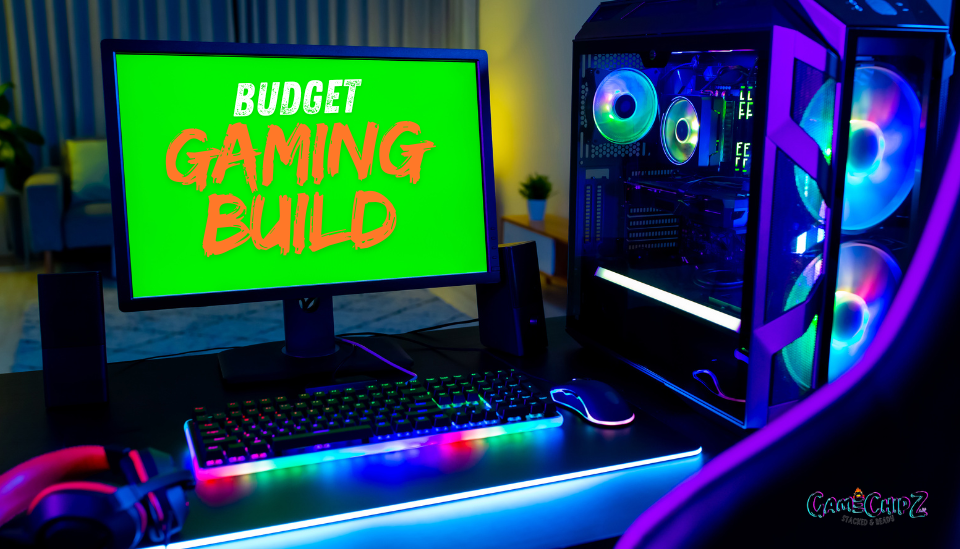
In this journey, we delve into the realms of PC building, focusing on pc components like the power supply, graphics card, and processor, ensuring your gaming rig is not only cost-effective but also powerful. We’ve categorized the best gaming build into three segments – budget-friendly, mid-budget, and high-end options, addressing a spectrum of price points in both dollars and pounds. Whether it’s analyzing gpu benchmarks or selecting the right SSD, this article aims to guide you through making smart choices that keep expenses down without compromising on gaming performance, exploring peripherals that enhance your gaming experience, and spotlighting models like the HP Victus 15L for standout 1080p gaming on a budget.
Understanding Your Gaming Needs
Key Hardware Considerations
- Processor Choices: Opt for scalable options like AMD Ryzen or Intel Core series to ensure your system can handle future software and game updates .
- Graphics Card Selection: Choose a robust graphics card such as Nvidia GeForce RTX 3060 Ti or AMD Radeon RX 6700 XT, crucial for handling intensive graphics and ensuring smooth gameplay.
- Memory Requirements: A minimum of 16GB DDR4 RAM is recommended to efficiently run most modern games without performance hitches.
- Storage Solutions: Implement a 1TB Gen 4 SSD which significantly enhances game load times and overall system responsiveness.
Maintenance and Compatibility System
- Updates and Maintenance: Regularly updating your system’s software, choosing reliable hardware brands, and timely replacement of aging components are essential for maintaining optimal performance.
- Game Compatibility Checks: Post-purchase compatibility determination is common; however, using resources like canyourunit.com can preemptively assess whether a game will run on your proposed setup.
Performance Metrics and Testing
- Core Performance Metrics: CPU clock speeds per core and the number of cores are significant for gaming, affecting how well games perform on your system.
- Storage Speeds: SSDs are preferable over HDDs for gaming due to faster access times, especially beneficial for games with numerous small files.
- Importance of GPU: A powerful graphics card is essential for advanced gaming setups including 4K displays and virtual reality, as it handles complex game physics and high-resolution textures.
System Requirement Insights
- Minimum and Optimal Specifications: Understanding the minimum and recommended system requirements for games is crucial. These are often set early in the game’s development and are based on the final QA team’s systems.
- Virtual Testing Environments: Utilizing virtual machines like ESXi can simulate different hardware setups to test game performance across various system configurations.
- Community Feedback and Benchmarks: Engaging with gaming communities and checking benchmarks can provide deeper insights into how well a game might perform on different systems.
By considering these factors, you can tailor a gaming PC that not only fits your budget but also meets your gaming needs effectively.
Entry-Level Options: Making Every Dollar Count
Budget-Friendly Builds: Maximizing Every Dollar
For gamers on a strict budget, the goal is to achieve the best possible gaming performance without breaking the bank. Here’s a detailed look at some entry-level gaming PC builds that promise solid performance for their price:
1. $500 PC Build for Gaming
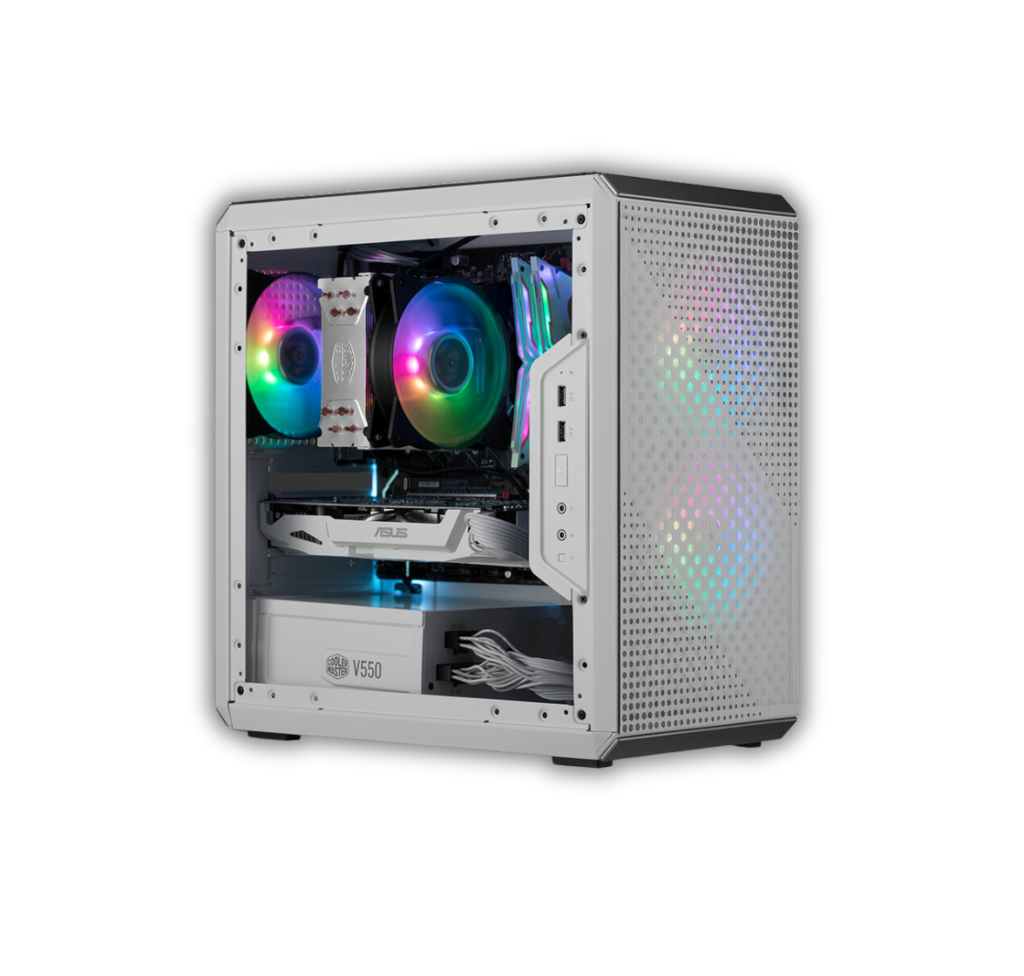
- CPU: Intel Core i3-14100F
- GPU: Intel Arc A380
- RAM: Silicon Power Value Gaming DDR4 RAM 16GB (8GBx2) 3200MHz
- Storage: Crucial P3 Plus (1TB)
- Case: Cooler Master MasterBox Q300L
- PSU: Thermaltake Smart Series 500W
- Total Cost: Approx. $500 / £450
2. $479 Cheap Bastard’s Gaming PC Build Guide
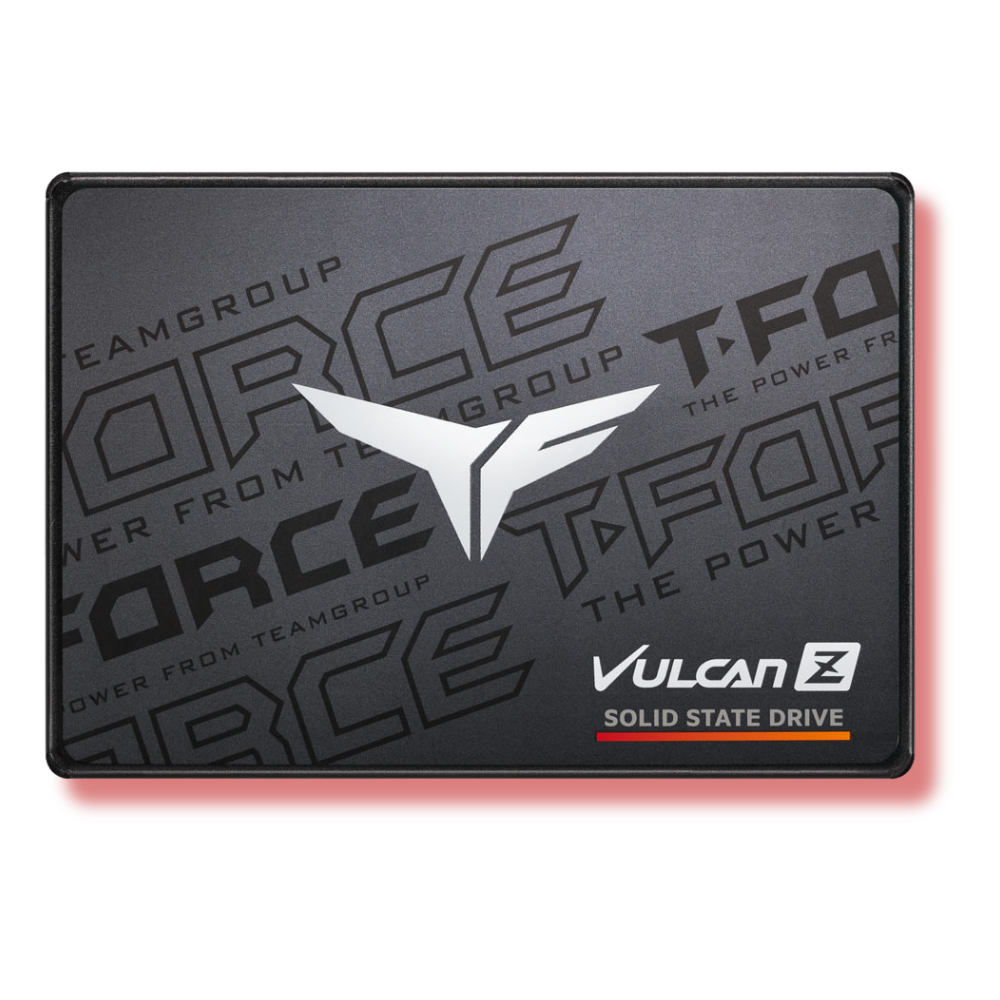
- CPU: Intel i3-12100F
- GPU Options: Intel Arc A580 8GB / ASRock Challenger Arc A580 8GB / SPARKLE Intel Arc A580 ORC OC Edition 8GB
- Memory: Silicon Power Value Gaming DDR4 RAM 16GB (2x8GB) 3200MHz CL16
- Motherboard: ASRock H610M-HVS
- Case: DIYPC DIY-F2
- CPU Cooler: Intel Laminar RM1 Cooler
- Power Supply: Thermaltake SMART 500W ATX
- Storage: Team Group T-FORCE VULCAN Z 2.5″ 512GB SATA III SSD
- Total Cost: Approx. $479 / £430
3. $479 Budget PC Components for Gaming (Alternative)
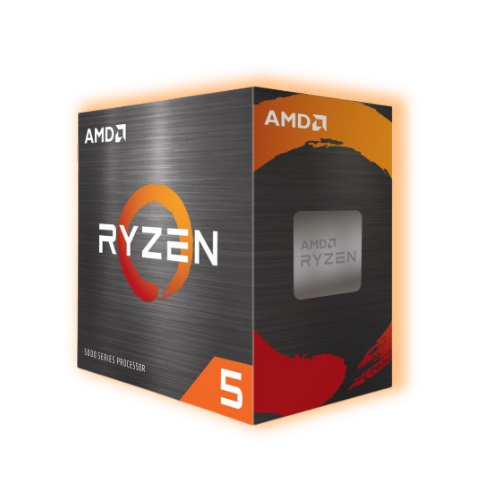
- CPU: AMD Ryzen 5 5600G
- GPU: Integrated graphics (Vega 7)
- Memory: Corsair Vengeance LPX 16GB (2x8GB) DDR4 3200MHz
- Motherboard: ASRock B450M-HDV R4.0
- Case: Cooler Master MasterBox Q300L
- Power Supply: EVGA 500 W1, 80+ WHITE 500W
- Storage: Kingston A2000 NVMe PCIe M.2 500GB
- Total Cost: Approx. $479 / £430
Key Considerations for Entry-Level Builds
When selecting components for a budget gaming PC, several factors are critical:
- 1080p Gaming Performance: Aim to meet this standard to ensure a satisfactory gaming experience.
- Balance Between Performance and Cost: It is essential to get the most out of every dollar spent.
- Upgradeability: Consider future performance improvements by choosing components that offer easy upgrades.
- Airflow and Case Value: Select cases that provide good airflow and are cost-effective, enhancing both performance and longevity.
These builds demonstrate how strategic component selection can yield a gaming PC that not only fits a tight budget but also delivers respectable gaming performance, making them ideal for gamers looking to enter the PC gaming world without a hefty investment.
Mid-Tier Mastery: Balanced Performance and Price
Best $800 PC Build for Gaming
For those aiming to strike a balance between cost and performance, the $800 gaming PC build is a standout choice. This configuration ensures smooth gameplay at both 1080p and 1440p resolutions with high settings, making it an excellent mid-tier option for serious gamers. Here’s a detailed breakdown of the components:
- CPU: Intel Core i5-14400F ($209)
- Motherboard: ASRock B760M-HDV ($89)
- GPU: Nvidia RTX 4060 ($299)
- RAM: TeamGroup T-Force Zeus DDR4 32GB (2x16GB) ($56)
- Storage: Silicon Power UD90 (1TB) ($78)
- Case: DeepCool Matrexx 40 3FS ($37)
- PSU: Thermaltake Smart 700W ($54)
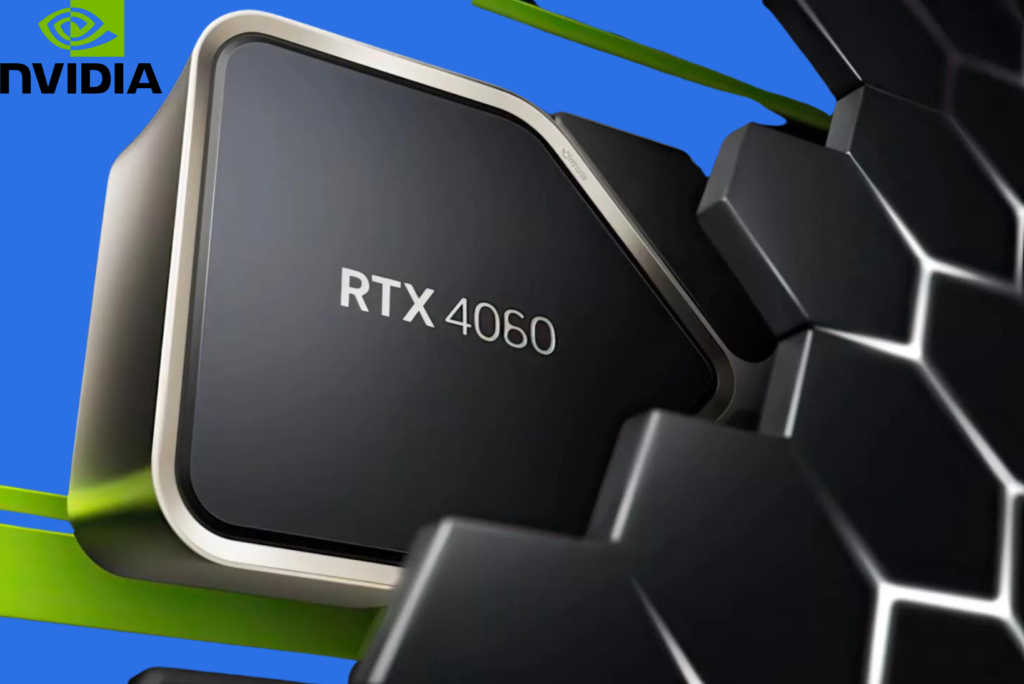
Key Component Considerations
- Choosing the Right GPU: The Nvidia RTX 4060 is recommended for its excellent performance in this price range, especially for gamers targeting 1440p resolution. It’s important to ensure the GPU has sufficient VRAM, with 6GB recommended for 1080p and 8GB for 1440p.
- Selecting the Appropriate CPU: The Intel Core i5-14400F offers a good balance between price and performance, featuring 6 cores and a high clock speed, which is ideal for gaming and multitasking.
- Memory (RAM) Selection: Initially, 16GB of DDR4 RAM is sufficient; however, this build includes 32GB to future-proof and cater to more memory-intensive applications.
- Storage Options: A 1TB SSD like the Silicon Power UD90 is chosen for its fast load times and ample storage for games and applications.
- Power Supply (PSU) Selection: A reliable 700W PSU from Thermaltake with a high efficiency rating ensures stable power delivery to all components.
- Case Selection: The DeepCool Matrexx 40 3FS is selected for its good airflow, ease of installation, and affordability, which helps in maintaining optimal system temperatures.
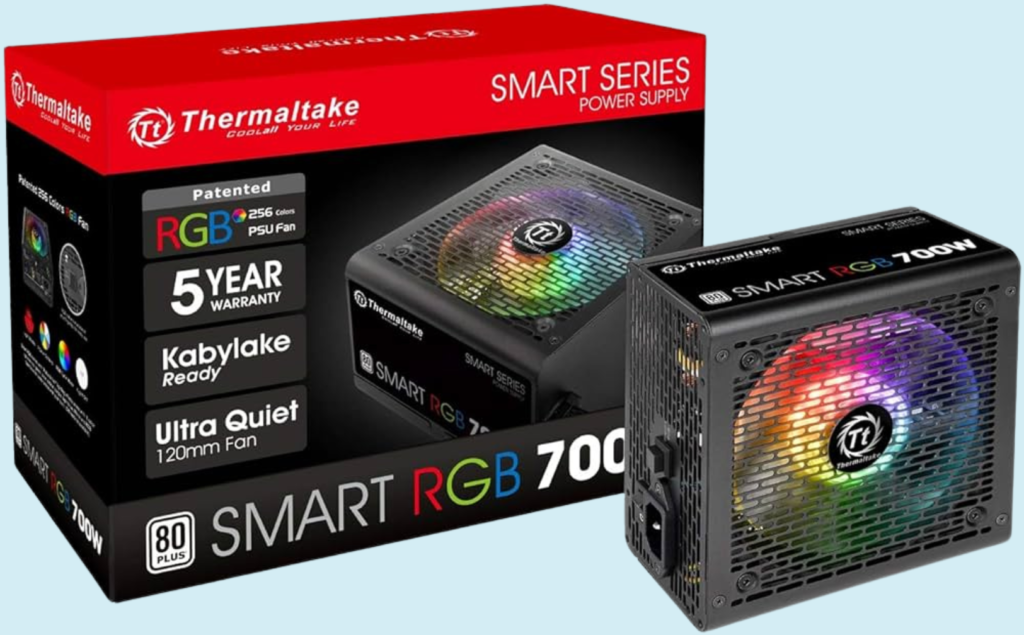
Balancing Performance and Cost
When assembling a mid-tier gaming PC, it’s crucial to prioritize components that significantly impact gaming performance. This approach ensures that every dollar spent contributes directly to a smoother and more immersive gaming experience. Opting for components with similar performance levels but lower price points can also achieve significant cost savings without compromising on quality or capability.
High-End Havens: Premium Picks for Serious Gamers
For gamers seeking unparalleled performance and future-proofing, high-end gaming PC builds offer the pinnacle of technology and gaming capabilities. Here are three premium configurations tailored for serious gamers, each delivering exceptional power and speed for the most demanding games and applications.
Best $1,500 PC Build for Gaming
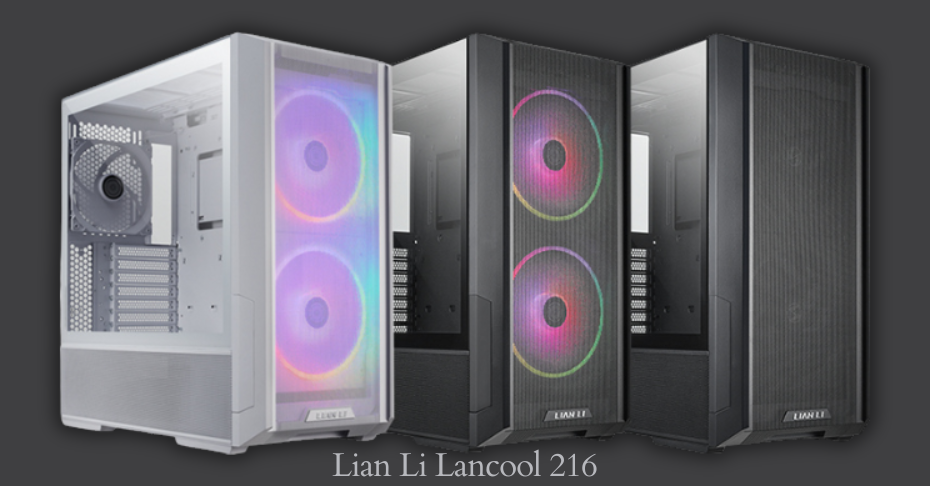
- CPU: Intel Core i5-14600KF
- Motherboard: Gigabyte Z790 UD AX
- GPU: Nvidia RTX 4070
- RAM: Crucial Pro 32GB (2x16GB) DDR5
- Storage: WD Black SN850X (2TB)
- Case: Lian Li Lancool 216RX
- PSU: Corsair CX750M
- Cooling: ID-Cooling FrostFlow 280mm
- Total Cost: Approx. $1,500 / £1,350
Best $2,000 PC Build for Gaming
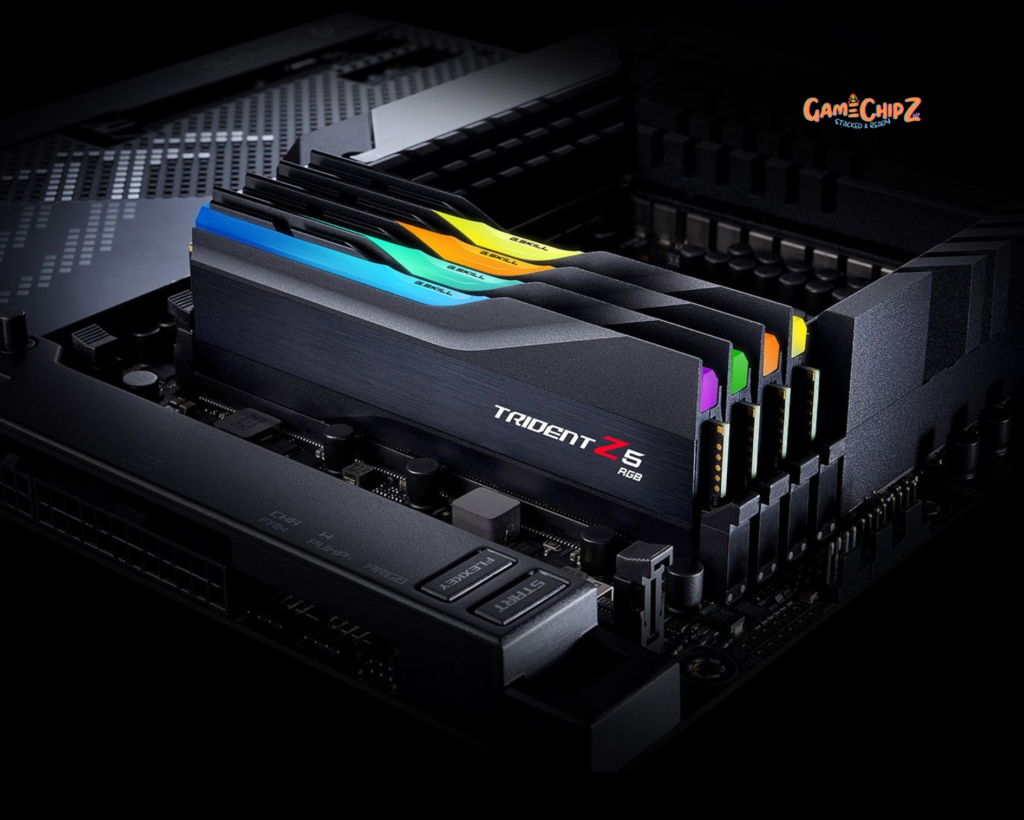
- CPU: AMD Ryzen 7 7800X3D
- Motherboard: Gigabyte B650M Aorus Elite AX
- GPU: Nvidia RTX 4070 Ti Super
- RAM: G.Skill Trident Z5 RGB Series 32GB (2 x 16GB) DDR5 6000
- Storage: WD Black SN850X (2TB)
- Case: Hyte Y40
- PSU: Corsair RM750e
- Cooling: Iceberg Thermal IceFLOE Oasis 360mm
- Total Cost: Approx. $2,000 / £1,800
Best $4,000+ PC Build for Gaming
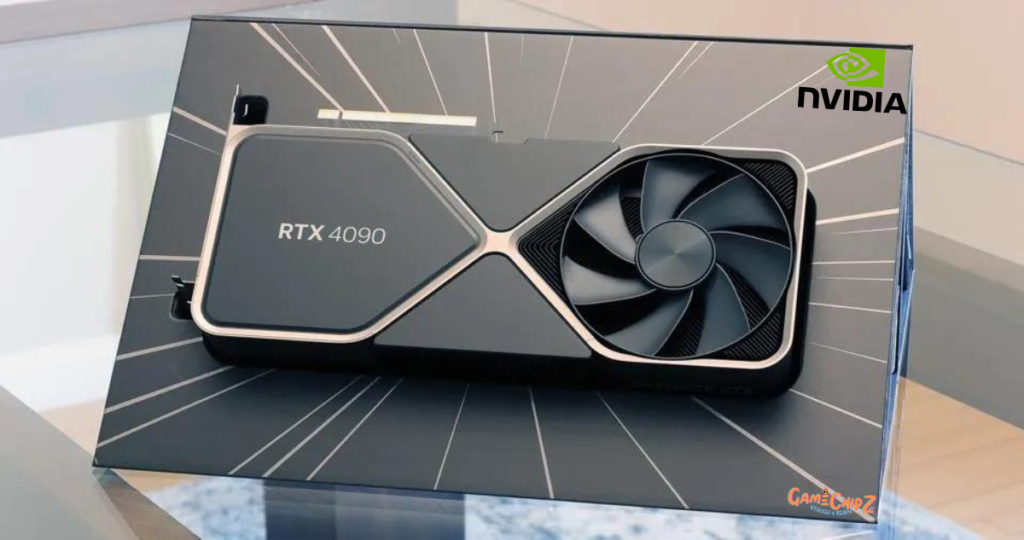
- CPU: AMD Ryzen 9 7900X3D
- Motherboard: Asus ROG Strix X670E-E
- GPU: Nvidia RTX 4090
- RAM: G.Skill Trident Z5 RGB DDR5 (2 x 16GB) DDR5 6400
- Storage: Samsung 990 Pro (4TB)
- Case: Fractal Design North XL
- PSU: Corsair RM1000e
- Cooling: Cooler Master MasterLiquid PL360 FLUX
- Total Cost: Approx. $4,000+ / £3,600+
Each of these builds is designed to offer top-tier performance, supporting the latest in gaming technology, including VR and 4K gaming. They provide ample power to handle future game releases and other high-demand applications, ensuring a gaming experience that is as seamless as it is immersive.
Future-Proofing Your Gaming Rig
Consider Upgrading Options
1. CPU and Motherboard Choices:
- Opt for the AMD Ryzen 5 7600 for its upgradability on the AM5 platform, ensuring future compatibility with newer technologies .
- The ASRock B650 PG Riptide motherboard is chosen for its comprehensive features like Wi-Fi, good VRMs, BIOS flashback, and expandability with four M.2 slots, making it ideal for future upgrades.
2. Cooling System:
- Invest in the Thermaltake Peerless Assassin 120, which supports future upgrades to more power-efficient CPUs without the need for a cooler change.
3. Memory and Storage:
- A 32GB RAM kit at 6000MHz with C30 timings is recommended to handle future gaming, streaming, and productivity needs efficiently.
- Start with a 1TB NVMe SSD and utilize the additional M.2 slots on the motherboard for easy storage expansion as needs grow.
Graphics Card Selections and Performance
1. Options for Different Budgets:
- RX 7800 XT for high-end 1440p gaming at $520.
- RX 6800 non XT as a cost-effective alternative for 1440p gaming at $390.
- RX 6700 XT for entry-level 1440p gaming at $320.
2. Performance Metrics:
- The RX 7800 XT achieves 108 FPS at 1440p on demanding titles, offering robust performance for future games.
- The RX 6800 and RX 6700 XT provide 93 FPS and 74 FPS respectively, balancing cost and performance effectively.
Case and Power Supply
- Case Selection: Choose the Fractal Design Meshify C RGB ATX mid-tower case, known for its excellent airflow and support for larger GPUs, priced at $90.
- Power Supply Considerations: The ENMAX Revolution DF2 850W 80 Plus Gold power supply is recommended for its high quality and capability to support future high-end GPU or CPU upgrades.
Cost Considerations
- System Pricing: Total system cost with RX 7800 XT is $1300, with RX 6800 at $1175, and with RX 6700 at $1150, providing options for various budgets.
Futureproofing Strategies
- Long-Term Compatibility: Focus on components like compatible GPUs, CPUs, DDR5 RAM, and PCIe Gen 5 SSDs to ensure the system remains relevant and powerful in the evolving tech landscape.
Enhancing Your Experience with Peripherals
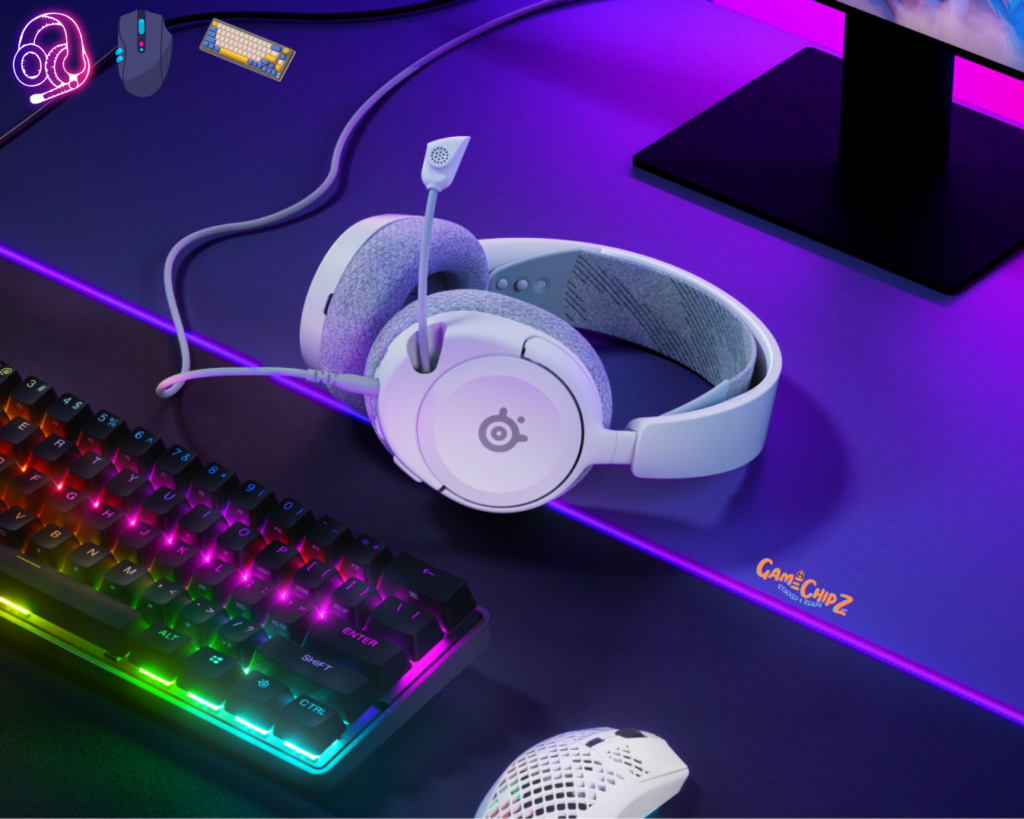
While the core components like graphics cards, processors, and memory play pivotal roles in gaming performance, peripherals such as monitors, headsets, keyboards, and mice significantly enhance the gaming experience. Here’s a closer look at some key peripherals that can elevate your gaming setup:
Keyboards for Every Gamer
- Cooler Master CK552: This full-size wired keyboard features Gateron mechanical switches known for their durability and responsiveness. The aluminum top plate adds a premium feel, and the on-the-fly macro recording is perfect for gamers who need to customize their controls quickly.
- Logitech K845: At a price point of $60, this keyboard offers a sleek, minimal design with options for linear, clicky, or tactile mechanical switches, allowing users to choose based on their typing preference.
Superior Audio Experience
- SteelSeries Arctis Nova 1: Known for its High Fidelity Drivers and 360° Spatial Audio, this headset also includes a customizable 10-band Parametric EQ and a ComfortMax system ensuring a perfect fit. The broadcast-quality noise-canceling microphone makes it ideal for multiplayer gaming, and its 3.5mm jack compatibility with multiple platforms enhances its versatility.
Enhanced Mouse Pads
- Ovenbird Gaming Mouse Pad: These pads feature unique topographic map designs and are made from a rubber polyester material. The smooth-gliding cloth surface supports precise mouse movements, while the thickness and stitched edges prevent fraying. Additionally, these mouse pads are washable and available in a variety of colors and illustrations, making them both practical and stylish.
These peripherals not only complement your PC build but also enhance the overall gaming experience by providing comfort, customization, and control.
Conclusion
Through the comprehensive journey of building a budget-friendly gaming beast, we’ve navigated the nuances of selecting the best PC components tailored for gamers operating within the constraints of various financial brackets. From the cost-conscious entry-level builds that squeeze every ounce of value out of each dollar, mid-tier configurations that balance price with performance, to the high-end setups that spare no expense for peak gaming experiences—the article has provided a roadmap for constructing a powerful, cost-effective gaming PC in 2024. Each segment, diligently outlined with market prices in both dollars and pounds, underscores our commitment to providing actionable insights for every budget.
This exploration underscores the dynamic nature of PC gaming as an evolving pursuit, where the judicious choice of components can significantly enhance gaming performance and future- proofing capabilities. It champions the virtue of informed decision-making driven by a thorough understanding of individual gaming needs, market trends, and the perennial quest for value. As we conclude, let the insights and recommendations serve not just as a guide but as inspiration for enthusiasts and novices alike to embark confidently on their PC-building journey, equipped with the knowledge to make every dollar count towards achieving the optimal balance of cost, performance, and longevity in their gaming rigs.
FAQs
How much would it cost to assemble a gaming PC in 2024?
Building a gaming PC in 2024 can vary greatly in cost. A basic gaming PC setup could be put together for under $1,000 if you choose your components wisely. On the other hand, a high-end gaming PC with the latest and greatest hardware could set you back $4,000 or more.
What are the top gaming computers available in 2024?
The best gaming PC deals in 2024 include:
- Alienware Aurora R15 with AMD Ryzen 9 7900X and RTX 4090 for $2,899.99. Dell XPS with Intel Core i7-13700 and RTX 4090 for $2,549.99.
- Legion Tower 7i Gen 8 (Intel) with RTX 4080 Super for $2,599.99.
- HP OMEN 40L with Intel Core i7-13700K and RTX 4060 for $1,429.99.
What is the price range for creating a high-performance gaming PC?
Constructing a beast gaming PC could cost anywhere from $1,000 for a modest setup to over $4,000 for a system equipped with the most advanced components available.
Is it feasible to build a gaming PC on a budget of $500?
Yes, you can build a gaming PC for around $500. For instance, the ASRock Intel Arc A380 is an entry-level GPU that’s designed to offer a decent gaming experience at medium settings. With its price below $150, it’s possible to create a gaming setup that costs between $300 and $500.

